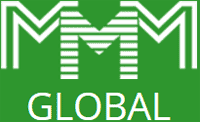Zimbabwe’s largest telecom provider handles MMM Global deposits
 Econet Wireless is the largest mobile network operator, second largest company by market capitalisation, and one of the largest employers in Zimbabwe.
Econet Wireless is the largest mobile network operator, second largest company by market capitalisation, and one of the largest employers in Zimbabwe.
For local MMM Global investors EcoCash, Econet’s payment processor platform, is ‘the primary way for people to deposit into‘ the Ponzi scheme.
While that itself isn’t significant (plenty of legitimate payment processors unknowingly get caught up in the MLM underbelly), what’s remarkable is Econet’s response to being called out on facilitating fraud.
Following a warning issued by the Bank of Zimbabwe, in which they all but admitted they are powerless to do anything about Ponzi schemes, Econet issued a statement clarifying they would
not be held liable for any losses arising from the use of EcoCash to engage in illegal activities such as ponzi schemes.
Econet claim they issued their statement after noticing
that some of Pyramid schemes are allegedly advertising in a manner that suggests that the EcoCash facility is a medium for prospective members to deposit their money.
Rather than announce they will take a proactive stance and combat money laundering, as happened in South Africa, Econet don’t appear fussed that EcoCash is openly being used to run a Ponzi scheme.
As long as the processor fees continue to roll in, who cares?
Well, as Batsirai Chikadaya from TechZim puts it;
I do believe unlike the RBZ, EcoCash could actually do something about these “illegal activities” and are conveniently choosing not to.
I also believe EcoCash has and still is turning a blind eye to money laundering and illegal activities in Zimbabwe.
To put the impact of EcoCash’s shirking of fiduciary duty in context, EcoCash is a mobile payment solution
that enables Econet customers to complete simple financial transactions such as sending money to loved ones, buying prepaid airtime for yourself or other Econet subscribers and paying for goods and services.
As of 2013, approximately a third of Zimbabwe’s adult population had an EcoCash account.
In the US several recent Ponzi busts have seen banks and payment processors ordered to pay disgorgement for, knowingly or not, facilitating financial fraud (Zeek Rewards, TelexFree).
Zimbabwe is of course not the US though. So perhaps to appreciate EcoCash’s nonchalant attitude toward enabling Ponzi schemes, one must consider the regulatory environment they operate in.
With Zimbabwe’s regulators unable to regulate the Ponzi schemes themselves, what’s the bet they won’t regulate payment processors that make them possible too?


It might be possible that the authorities see non intervention as a way of quelling the masses, since people tend to openly and publicly join in large numbers in countries like this.
If enough people are happy, at least for a while the money isn’t coming from government coffers.
Guess who the numpties blame when it collapses…
Better to regulate and deal with the vocal minority who complain, 99.9% of which are scammers who want to keep the money they’ve stolen.
The founder of Econet is Strive Masiyiwa, the “richest man in Zim” (even tho he’s been expat for 10 years) with a “zero tolerance of corruption” policy and possibly Mugabe’s successor.
Econet’s lost 75% of its value in the last two years, so local management won’t be turning any business away unless told to.
Wat of people buying mbanje, prostitution, bribes etc paying money via ecocash… can ecocash track those illegal transactions. LOL
No idea. But they could certainly track investors and freeze accounts if authorities investigated and identified local MMM Global promoters.
Legitimate processors and banks often freeze accounts and submit Suspicious Activity Reports to authorities when they suspect something is not right. With respect to MLM, this is usually sudden transactions of large sums of money that can’t legitimately be accounted for.